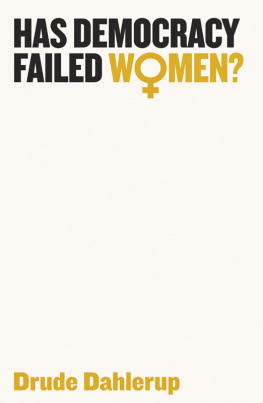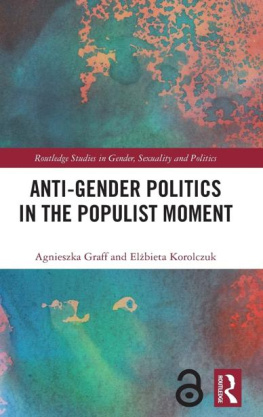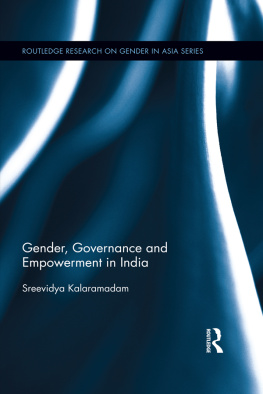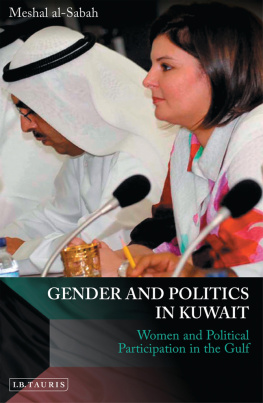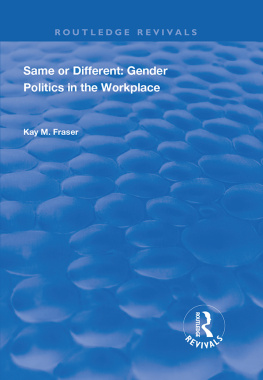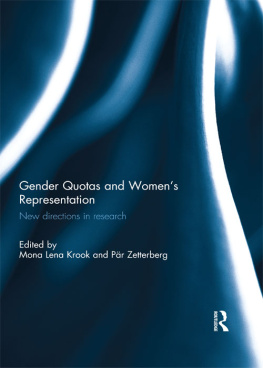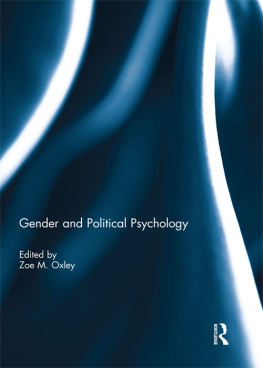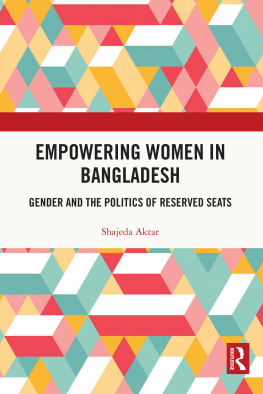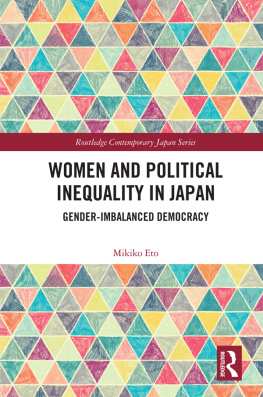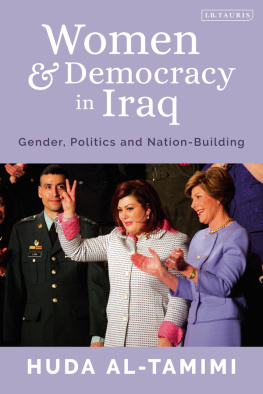
Series Title
Democratic Futures series
- Stephen Coleman, Can the Internet Strengthen Democracy?
- Donald F. Kettl, Can Governments Earn Our Trust?
Copyright page
Copyright Drude Dahlerup 2018
The right of Drude Dahlerup to be identified as Author of this Work has been asserted in accordance with the UK Copyright, Designs and Patents Act 1988.
First published in 2018 by Polity Press
Polity Press
65 Bridge Street
Cambridge CB2 1UR, UK
Polity Press
350 Main Street
Malden, MA 02148, USA
All rights reserved. Except for the quotation of short passages for the purpose of criticism and review, no part of this publication may be reproduced, stored in a retrieval system or transmitted, in any form or by any means, electronic, mechanical, photocopying, recording or otherwise, without the prior permission of the publisher.
ISBN-13: 978-1-5095-1636-0
ISBN-13: 978-1-5095-1637-7(pb)
A catalogue record for this book is available from the British Library.
Typeset in 11 on 15pt Sabon
by Fakenham Prepress Solutions, Fakenham, Norfolk NR21 8NN
Printed and bound in Great Britain by Clays Ltd. St Ives PLC
The publisher has used its best endeavours to ensure that the URLs for external websites referred to in this book are correct and active at the time of going to press. However, the publisher has no responsibility for the websites and can make no guarantee that a site will remain live or that the content is or will remain appropriate.
Every effort has been made to trace all copyright holders, but if any have been inadvertently overlooked the publisher will be pleased to include any necessary credits in any subsequent reprint or edition.
For further information on Polity, visit our website: politybooks.com
Tables and figures
Tables
. Degrees of male dominance based on numerical representation of women
. Six dimensions of male dominance in politics
. Overcoming thresholds. Trajectories of womens parliamentary representation in six old democracies since suffrage
. Variations between parties: percentage of women in the party groups in parliament
. Two leading regions for womens political representation
. Women in parliament: top-ranking countries
. Seven arguments for and against quotas
. Immediate effect of quota laws on womens parliamentary representation and on quota law revision
Figures
. Percentage of women in parliament 19972017, worldwide and by region
. Level of democracy and womens parliamentary representation, in percentages
Preface
Has democracy failed women? Many would claim yes, since women have less than a quarter of the seats in the worlds parliaments, and since the elimination of gender inequality is not a salient issue high on the political agenda almost anywhere. Most of the political leaders in the world are men. Just take a look at the usual family photo taken at a world summit!
However, others would stress that women, from a position of total exclusion, are now gradually being included in elected assemblies all over the world, and more and more countries have experienced having a woman prime minister or president. We now even see women as finance and defense ministers some of the last male bastions in politics.
The UN World Conference on Women in Beijing in 1995 represented a major shift of the global discourse away from the previous focus on womens (alleged) lack of qualifications and political interest to a new focus on the lack of inclusiveness of the political institutions themselves. This is also the approach that I will adopt in this book.
There [in Beijing, 1995] was an almost universal or palpable desire to be in power, to be in leadership, to change the terms of the relationship with the great globe; the mode of operation shifted from one of stating demands and needs to one of seeking control over the decision-making process, wrote Devaki Jain in her book Women, Development, and the UN (2005). But can this optimism be maintained today in a world of climate change, economic crisis, armed conflicts and Trumpism? Is the world on the right track towards full inclusion of women in political life, and can we rule out future backlashes?
Paradoxically, at the same time that gender parity in politics is included as a principle in most international declarations, we find no uniform position among feminists on the benefits or actual outcomes of including women in male-dominated political institutions, for instance by the adoption of quotas. It will, however, be argued in this book that old democracies as well as countries in transition to democracy need what British political scientist Anne Phillips has called the presence of women, based on the new principle of parity both as a right in itself and because women from all walks of life and from all over the world need more inclusive and well-functioning democratic political institutions to counteract the discriminatory effects of free market forces. The complexity of achieving parity in political life will be illustrated with examples from my work as an advisor on the political empowerment of women around the world.
Drude Dahlerup
Professor of Political Science
Stockholm, April 2017
Acknowledgments
I want to thank Louise Knight of Polity Press for suggesting this short book on women and democracy as a way to present an update of my many years of research on this topic and my recent experiences as a global advisor on how to empower women in political life in countries as diverse as Cambodia, Sierra Leone, China, Egypt, Tunisia, Kosovo, Bhutan, Kenya and the Ivory Coast. I am grateful to all the hard-working womens NGOs and the many elected female politicians and government ministers who have shared with me invaluable insights into the barriers women meet in politics and how to overcome them.
I thank Nana Kalandadze and Rumbidzai Kandawasvika-Nhundu, International IDEA, and Zeina Hilal, the Inter-Parliamentary Union, for our great collaboration around the Global Quota Website, www.quotaproject.org. I also want to thank all my wonderful new friends in the Global Civil Society Advisory Group (201215) to UN Womens Executive Director, first to Michelle Bachelet, followed by Phumzile Mlambo-Ngcuka.
Emil Johansson, Alma Jonssen and Vaselis Petrogiannis have worked as research assistants with the coding of the Gender Quota Database (GQD), Stockholm University, 2014, and Tova Ask has worked as research assistant on various tables in the book. The DanishVelux Foundations have contributed through their financial support for the GRIP research project, based at Aalborg University, Denmark.
I am grateful to my colleagues at the department of Political Science at Stockholm University, especially Lenita Freidenvall and Diane Sainsbury, and to my extended research network all over the world for discussions on the development of Gender & Politics as a research field. Finally, I am grateful to my Danish-Swedish-Spanish family for so much in life, and I want to dedicate this book to my marvelous grandchildren, Carlos 8, Otto 6, Silas 5 and Alva 2.
Exclusion Without Words
As the daughter of a feminist mother, I knew that my high-school teacher was wrong when, without any reservations, he taught us that the ancient city-state of Athens was the cradle of democracy. Can one really speak of democracy when a large portion of the population, perhaps even the majority, is excluded from political decision-making, as was the case in ancient Greece for women as well as for immigrants, slaves and workers? As a schoolgirl I protested in class, though to no avail.
Next page
